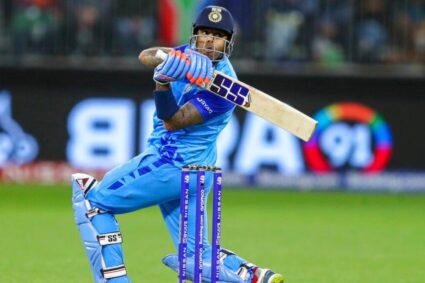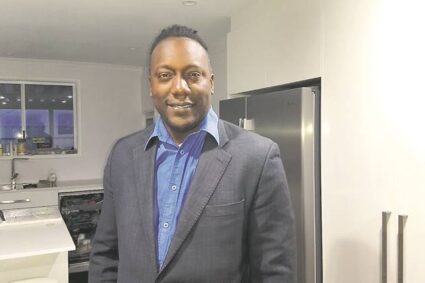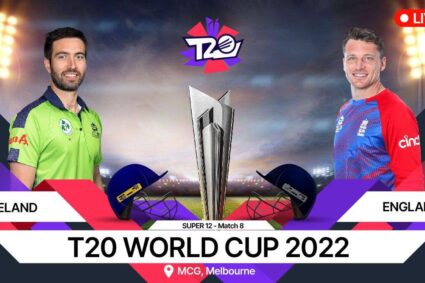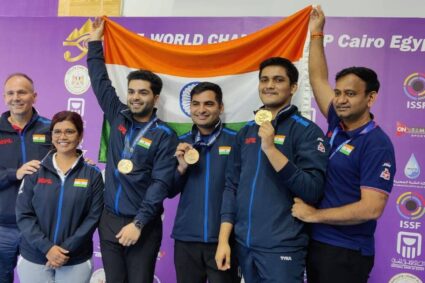
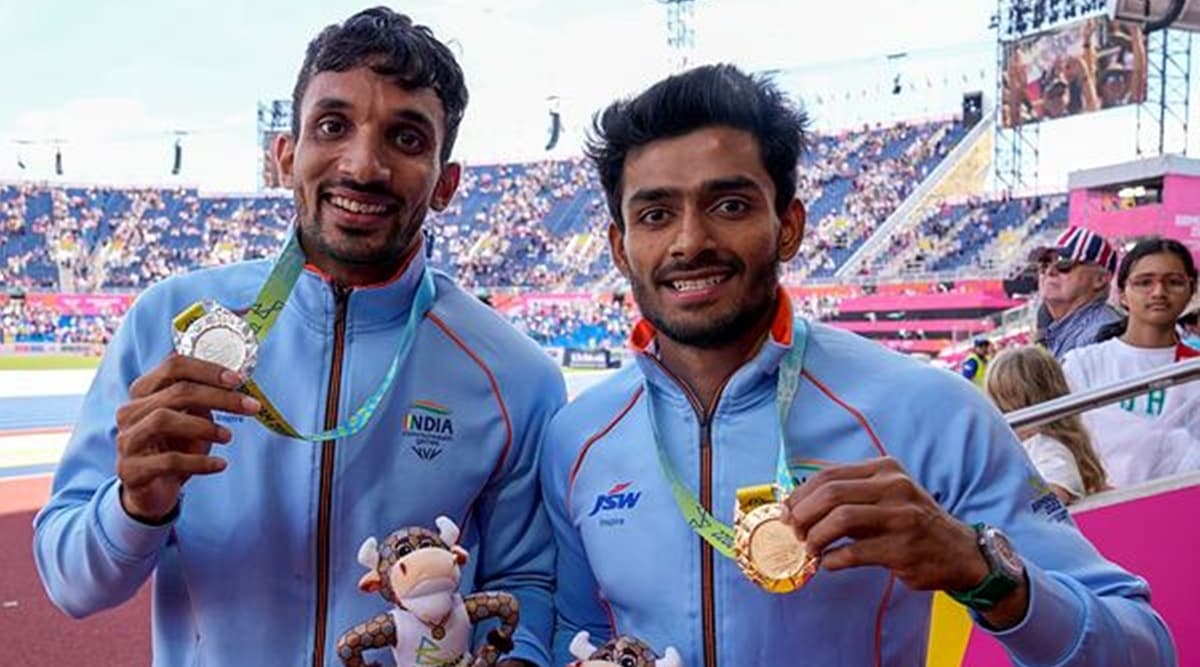
Eldhose Paul started with a dawdling, please-turn-to-page 2 distance of 14.62 metres when competition in the triple jump final started at the Commonwealth Games. He had made the finals of the World Championships a fortnight ago but with no 17-m jump to his name ever, there was no halo.
On Sunday, Paul’s sub-15m first jump, and a career-best of 16.99m, put him in the flanks of the two fancied Indians — the rocker, white headband-wearing Praveen Chitravel and the compulsive 17m-plus hop, skip and jumper Abdulla Aboobacker Narangolintevida.
Modestly built, and a slow starter, Paul gave no indication that a monster 17.03m was in the offing, till he leapt and flew further than anyone else in that morning medal session. It was a distance that would have seen him finish sixth at the last Olympics in Tokyo. In Birmingham, that meant a rare 1-2 for India at an international track and field event, with Paul taking gold and Abdulla the silver even as Chitravel missed the bronze.
Poised to study BSc Chemistry at MA College in Kerala’s Kothamangalam, Paul, who had once backed himself to bowl quick in cricket at school in Ernakulam, had endured two disappointing years at the start, when his triple jump distance of 13.80m kept him out of his college team. He ran cross-country on an uphill course, and even tried the most difficult of events, pole vault, to fill up the hollowness of not making any headway in a sport he loved. Jumps Dronacharya coach T P Ouseph then got down to sorting out his disjointed technique.
Subscriber Only Stories
On Sunday, too, Paul, who was one of the shortest of all triple jump entrants at the Alexander Stadium, lost balance and struck a jarring rhythm on his opening jump, losing his stride. The 17-m barrier wasn’t playing on his mind.
But then, the 25-year-old is known to be a quick-learner. In only his second overseas meet, he had picked up the warm-up patterns of experienced jumpers from the World Championships at Eugene in Oregon, US. Domestic competitions rarely have qualifications or the hour-long warm-up that international meets afford. It also meant Paul had to quickly learn to peak within just three jumps, something he’d found difficult. Wisened and hopeful after the Worlds, the CWG beckoned, though most attention was on his two “17m” team-mates. Into this mix went Bermuda’s energetic jumper Jah Pernchef, who set the early marker with a 16.92m in his opening jump.
The first Indian to really threaten to take the lead was the junior-most Chitravel, the lanky, ambitious jumper who reckons he will match Neeraj Chopra’s gold feat at the next Olympics in Paris. He jogged up to 16.89 in his third jump, even as Abdulla was building up momentum with each progressive jump.
Eldhose, though, followed up his 14.62m with a quiet 16.30m, before stomping forth for his personal best of 17.03m, in turn breaching his personal best.
“My coach always says, focus only on personal best, not even medals. Today I did, and a medal came. But we were going for gold-silver-bronze as a pack. Knowing that gave us confidence,” Paul said later of the almost “Amar-Akbar-Anthony” turn for India on the podium.
Paul’s grandmother Mariamma, who raised him after his mother passed away, always told him, “Be a good person.” He was playing the team surge here for India.
Abdulla would bring on his 17.02m on his fifth attempt even as Chitravel and the Bermudan faded as the afternoon wore on, the latter settling for a bronze for his 16.92m opener.
In the 1970 Commonwealth Games, Mohinder Singh Gill had won a triple jump bronze and followed it up with a silver in 1974. Suresh Babu, who picked a long jump bronze in 1978, had been a triple jumper, too. Thereafter, the triple jump was among a bunch of disciplines identified to target in Indian athletics, along with walking, 400m and javelin. The sprints, hammer throw, pole vault and high jump were considered tough for medals at the highest levels, but triple jump got a bunch of foreign coaches, with local Kerala and Punjab coaches providing the raw material with their technically efficient training.
Arpinder Singh and Ranjith Maheswary later made headway in the event, but it was only in the last few seasons that the Indian triple-Sundae pack started pushing the limits for 17m-plus jumps.
The original “Amar-Akbar-Anthony” troika that Abdulla remembers was him, Paul and Karthik Unnikrishnan, who graduated from college ranks to inter-Services. Abdulla joined the Air Force under renowned coach Harikrishna, and Paul joined the Navy, and the 2018 inter-department brought out the best in the young jumpers as they began pushing each other.
“There is no rivalry between us. We are brothers. In triple jump, we only have to improve ourselves,” Paul said. “We adapt to each other, and never disagree,” said Abdulla, the gentle jumping giant who won silver. He’s a chicken biryani person, and Paul a beef-parotta lover. While Paul’s favourite Netflix pick over the last few months has been the Birmingham-based “Peaky Blinders”, Abdulla digs Malayalam actor Vishnu Unnikrishnan’s movies and his version of the comedy thriller “Amar Akbar Anthony”.
Abdulla studied Economics at the same college as Paul, and it was only triple jump that got their paths crossed. Both have benefitted from jumping coaches who stress on amicable friendship rather than needling each other to bring out the edge. “Frankly, we don’t need all that drama of enmity. Coach always says ‘be friendly, don’t spoil your mood and take no stress’. It’s how we’ve gotten better,” Paul said.
Both share videos of the legendary Jonathan Edwards, and trade tips on how to get better. On Sunday, Paul advised Abdulla to go fiercer on the attacking phase and draw out the 17.02m that brought India silver.
“It could have been gold-silver-bronze. But that’ll happen soon. We’ll all improve techniques and get better,” said Paul, who knows a thing or two about waiting patiently to explode. He goes on to add that the Neeraj Chopra gold has had a rub-off effect on Indian track and field. Three medals from the last Commonwealth Games in Australia’s Gold Coast are now eight — and Chopra isn’t even in Birmingham.

